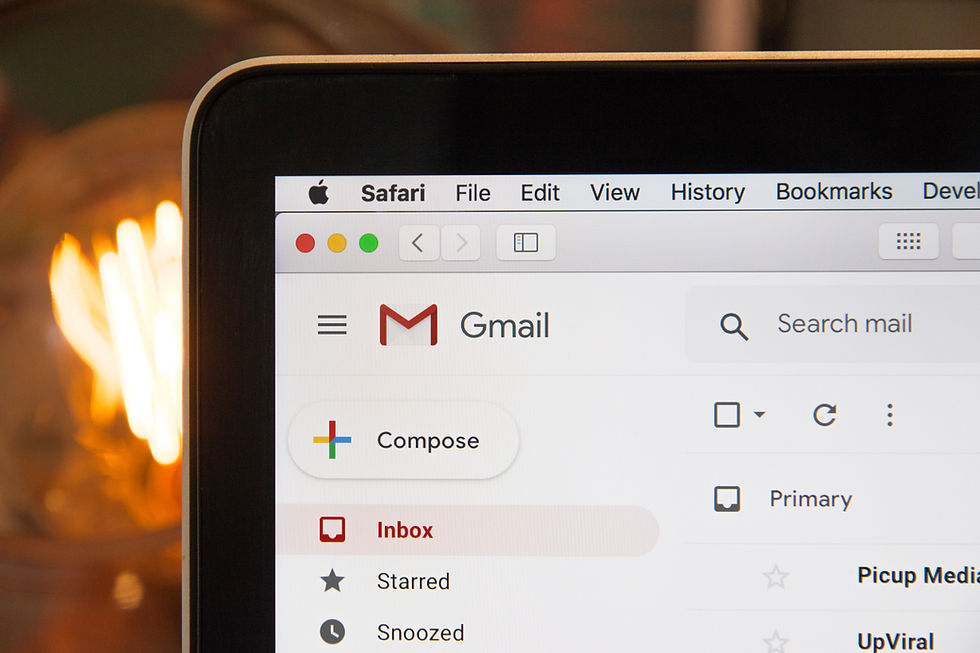Why Do Small Businesses Need Digital Marketing?
- Joleen Van Dixhoorn
- Jul 3, 2024
- 3 min read
Hey there, small business owner! In today's fast-paced digital world, having a strong online presence is no longer a luxury—it's a necessity. Digital marketing is your secret weapon to reach more customers and compete with the big players. So, why do small businesses need digital marketing? Let’s dive in and find out!

What is Digital Marketing?
Simply put, digital marketing is all about using the internet to connect with your audience. Whether it's through social media, search engines, or email, digital marketing helps you reach people where they spend most of their time—online!
Benefits of Digital Marketing for Small Businesses
Increased Visibility
First things first, digital marketing puts you on the map—literally! With SEO (that's search engine optimization) and content marketing, your business can show up at the top of search results. Imagine a potential customer searching for a product you offer and finding your business right away. That’s the magic of digital marketing!
Cost-Effective Marketing
We all know traditional advertising can cost a pretty penny. The beauty of digital marketing is that it’s super affordable. Social media ads, email marketing, and pay-per-click (PPC) campaigns won’t break the bank but can bring in big results.
Targeted Advertising
One of the coolest things about digital marketing is how targeted it can be. Want to reach moms in their 30s who love yoga? Done. Need to connect with tech enthusiasts in your city? Easy. With tools like Google Ads and Facebook Ads, you can zero in on your ideal audience and make sure your message gets to the right people.
Building Customer Relationships
Digital marketing isn’t just about selling—it's about connecting. Social media, email newsletters, and blogs give you the chance to engage with your customers, answer their questions, and share your story. It’s like having a conversation with your customers, building trust and loyalty along the way.
Key Digital Marketing Strategies for Small Businesses

Search Engine Optimization (SEO)
Think of SEO as your online map. It helps people find your business when they search online. By optimizing your website and content, you can climb to the top of search results and attract more visitors.
How to Get Started with SEO
Start by researching keywords related to your business. Use tools like Google Keyword Planner or Ubersuggest to find terms your potential customers are searching for. Incorporate these keywords into your website content, blog posts, and meta descriptions. Don’t forget to optimize your website’s loading speed and make sure it’s mobile-friendly. Both are crucial for improving your search engine rankings.

Social Media Marketing
Social media is where the magic happens. Platforms like Facebook, Instagram, and LinkedIn are perfect for sharing your story, posting updates, and running ads. It’s all about being social and engaging with your audience.
Best Practices for Social Media Marketing
To get the most out of social media, create a content calendar and post regularly. Engage with your audience by responding to comments and messages. Use a mix of content types—photos, videos, stories, and live streams—to keep things interesting. And don’t be afraid to show the human side of your business. People love seeing behind-the-scenes looks and hearing personal stories.

Content Marketing
Content is king, and for good reason. Creating valuable content—like blog posts, videos, and infographics—can position you as an expert in your field and attract potential customers. Share your knowledge, tell your story, and watch your audience grow.
Creating a Content Strategy
Start by identifying your audience’s pain points and interests. What questions are they asking? What problems do they need solving? Create content that addresses these needs and provides real value. Use a mix of formats, such as blog posts, videos, and infographics, to cater to different preferences. And remember, consistency is key. Regularly publishing high-quality content will help build your reputation and keep your audience coming back for more.

Email Marketing
Email marketing is a great way to keep in touch with your customers. Send out newsletters, special offers, and updates to keep your audience engaged and informed. It’s personal, direct, and effective.
Building an Email List
Start by offering something valuable in exchange for email addresses. This could be a free ebook, a discount, or access to exclusive content. Make sure your sign-up form is easy to find on your website and promote it on your social media channels. Once you have a list, segment it based on your subscribers’ interests and behaviors. This allows you to send more personalized and relevant emails, which can significantly improve your open and click-through rates.
Conclusion
So, there you have it! Digital marketing is a game-changer for small businesses. It’s cost-effective, targeted, and helps build meaningful relationships with your customers. If you're wondering why small businesses need digital marketing, the answer is simple: it’s the key to growing your business in today’s digital world.







Comments